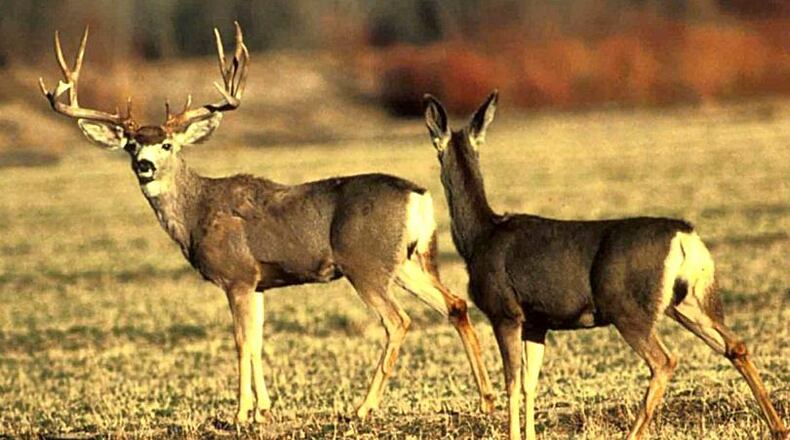A group of former state wildlife officials is taking aim at an executive order by Gov. Nathan Deal that could dramatically expand a controversial hunting practice.
The head of the Georgia Wildlife Federation, joined by four retired high-ranking Department of Natural Resources leaders, warned that Deal's April order involving hunting deer over bait could have harmful long-term environmental consequences.
The practice, known as baiting, makes it easier for hunters to rack up deer kills each hunting season. It also means bigger profits for landowners who run south Georgia’s huge hunting plantations as well as more money for the grain distributors looking to sell more corn.
To opponents, baiting deer verges on blasphemy, transforming hunting from a skill to just a kill. They also say it could lead to more rapid transmission of disease and reduce the overall deer harvest.
An uneasy truce has existed since 2011, when legislation allowed hunters in a “southern zone” to hunt deer within 200 yards of a feed station while those in a “northern zone” were barred from doing so.
But Deal’s order could change the landscape. It authorized the board of the Department of Natural Resources - whose members he largely appointed - to find an “appropriate” expansion of the southern zone.
In the letter, Mike Worley of the Georgia Wildlife Federation and his allies say such a move defies “consistent professional opposition” to an expansion, along with a series of failed legislative attempts.
His co-signers include a retired deputy commissioner, two former heads of the wildlife division and an ex-assistant director. The sixth name on the letter belongs to an executive with the Westervelt Co., a timber and paper company.
They each urged the department’s board to “critically consider” the impact of Deal’s order.
“It seems odd that immediately following a session where the Legislature could not/would not deal with the issue, and when engagement from the Department’s wildlife professionals was conspicuously absent, you are faced with a very unusual attempt through an executive order to impose expanded baiting,” they wrote.
Deal's office had no immediate comment, but in his order he said state officials "found no evidence that hunting over feed" has directly impacted deer harvest numbers or led to more disease. It also cited "inequity" between hunters in different parts of the state.
Worley and the others argue in the letter that this is a red herring. They cite studies that show a decrease in deer harvest and a reduction in hunting efficiency because deer in areas that allow baiting become more nocturnal.
The wildlife experts also say high amounts of corn can be harmful to deer, that aggressive baiting could lead to the spread of more feral hogs and other “nuisance” animals, and that the practice could lead to more deer collisions with cars if spread to more densely populated areas.
“In short, the shooting of deer over bait is bad for hunters, hunting and our deer herd,” wrote the officials.
“Consider the science and the ‘sound wildlife management principles’ that it ignores,” they added. “Perhaps even ask yourself why professional wildlife biologists are not the ones recommending baiting.”
About the Author



